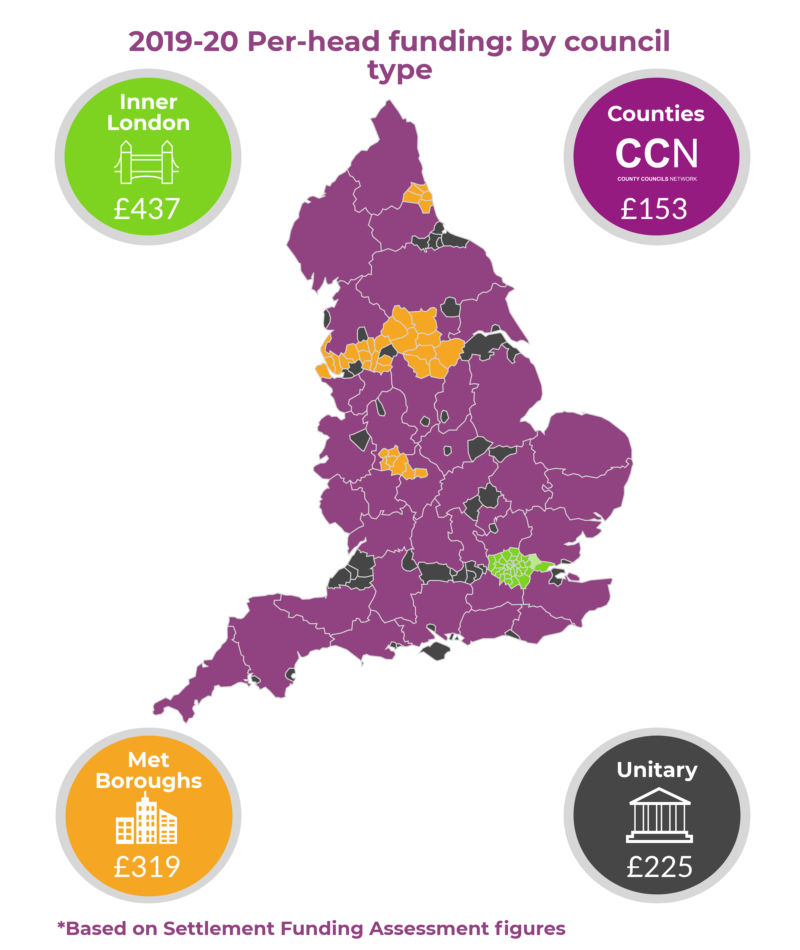The Fair Funding Review is a golden opportunity to create a more equitable system of funding local government; ensuring that it is fit for purpose in the 21st century.
For many years, CCN has has outlined the unfair nature of the current system. County authorities are the lowest funded upper tier councils. Our areas do not receive the same levels of services as better funded urban areas, with many of our residents needs going ‘unmet’. And our residents are shouldering a disproportionate council tax burden.
The whole of the sector accepts the principle that the current system needs a dramatic overhaul and have worked collaboratively with government to agree the principles of a simpler ‘cost-driver’ model of funding councils.
Our own proposals have put forward the case for a new system based on a less complex and transparent formula. Funding for universal services should distributed according to the main drivers of local authority costs and demands, such as population and rurality, while considering whether an evidence-based weighting for deprivation should be included. For more more complex demand-led services it must recognise ageing demographics, complex needs, sparsity and deprivation in areas such as social care, children’s services and public health.
Importantly, the new system must focus on what councils need for the future, not just their historical expenditure and decisions over council tax.
The Fair Funding Review is to be concluded this year, and the current direction of travel is promising. However there is a long way to go; with key “service- specific formulae” for areas such as adult social care still to be decided, alongside the main foundation formula.
That’s why A Fair Future for Counties will our continue evidence-based campaign for fairer funding.



